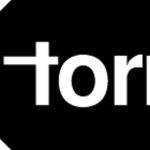Token market making is a process by which a market maker brings buyers and sellers together to create a market for a token. The objective is to increase the liquidity of the token and attract traders to the platform. This process can be done on both centralized and decentralized exchanges.
Historically, market making was performed manually. However, technology has changed the way it is done. Today, automated and smart contracts are used to execute the trading strategy. It has become the norm on most exchanges.
Market makers can be defined as individuals or companies who buy and sell crypto for profit. These market makers are always on the lookout for opportunities to purchase and sell liquid tokens. They can also trade against a project’s interests for a gain. A proper market maker provides clear communication and transparent fee structure.
Liquidity is an essential ingredient to the success of any market. When a market maker purchases tokens from a token issuer and then sells the same tokens back to the same token issuer, the market maker profits from the spread. Typically, the spread is the difference between the highest and lowest buy and sell prices. For example, if the market price of ETH is $3,900 and the market price of XYZ is $2,850, the market maker would make a profit of $0.08.
Market making is an important component to the success of any crypto project. Proper market makers should be able to support trading at different conditions and provide detailed reporting. Market makers can also help to incentivize retail trading. If a large order is placed, the market maker can reduce the price impact.
Automated market making is also a good way to achieve liquidity. Using a smart contract to generate a market order allows for efficient and accurate pricing of tokens. Another type of market making involves the use of an aggregate order book. An aggregate order book combines bid-ask orders on exchange platforms. Traders can select which price points they want to see available for a certain token.
While most crypto projects require a market maker to provide liquidity, there are some instances where the project itself can take the lead. For instance, a project might list its tokens on an exchange in a bid to generate more awareness about the token. Alternatively, a project might partner with a market maker and have a token listed on an exchange.
Some tokens, such as the Web3 token, are easily transferable and easy to issue. Therefore, the industry around Web3 tokens is quite robust. In addition to being an asset that is freely transferable, Web3 tokens also represent a shared ownership of a project. As a result, the entire industry is engaged in supporting the growth of this token.
One of the more popular designs is an AMM-based DEX. This is a popular design because it has the ability to provide deep liquidity for digital tokens. However, it’s important to note that this type of market making does not guarantee infinite liquidity.










